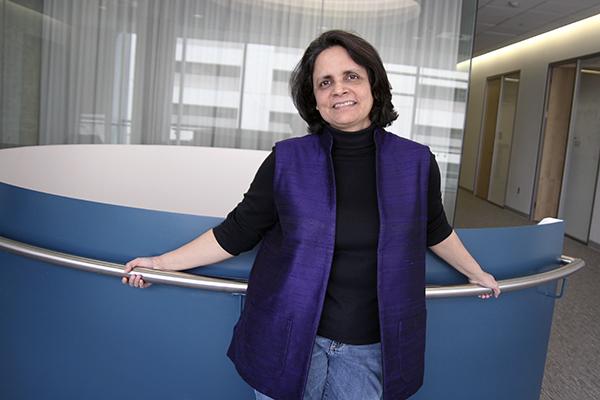From voting security to cyberspace across the disciplines, GW researchers are receiving more funding for research in the growing field of cyber security.
The number of grants researchers have received from the National Science Foundation to research security and cybersecurity has doubled in the past five fiscal years, according to documents detailing the grants. Researchers at GW said that cybersecurity is a growing issue and more interdisciplinary work is expanding the field.
In 2015, GW received more than 10 grants from NSF to study cyberspace and computer security. In 2010, University researchers received funding for about five grants.
Poorvi Vora, a professor of computer science, received an NSF grant in 2014 for more than $600,000 to continue her research on the future of voting and the verification of election outcomes. She said her previous research developed a voting system where voters and observers can audit an election without being required to trust election officials or voting system software.
“The key point is that this information is democratized, meaning the information about why we think that the outcome of this election is correct is made available to everyone,” Vora said.
Vora said that if someone tries to rig the election and change votes, there is a high probability it would be detected. She said the system works in that each ballot has a specific confirmation number and they put all the confirmation numbers by ballot identification.
“In our case there is less emphasis on procedure and more on making this information available to the public,” Vora said. “Anybody can check that the tally is correct.”
Vora said the end goal is to use cryptography, which she described as “the science of secret code,” to solve security problems within civil participation, and that goal is not restricted to the United States. She said she was among 30 experts who spoke with the Indian government last year about Internet voting, which she said can not yet be done securely.
Hua Wu, a doctoral student working with Vora, said in an email that he is in charge of writing the protocol in the voting systems’ security research. Wu said their research has found some vulnerabilities in existing voting protocols that they are now trying to fix.
“We are also trying to use a new way to think about this issue, which could make the solution more realistic and more rational,” Wu said. “Our goals are making our protocol as secure as possible, meanwhile making it more usable.”
Lance Hoffman, the co-director of the Cyber Security and Privacy Research Institute, received a $100,000 grant from the NSF in 2015 to hold a workshop as a part of his NSF-funded research to study how social and computer scientists work together in cybersecurity research.
Hoffman created the first cybersecurity course at University of California, Berkeley in 1970 and established GW’s computer security program in 1977. Hoffman said cybersecurity research has come into focus as governments work to keep themselves secure online.
Hoffman said about 30 cybersecurity researchers, all grantees working on projects, came to the workshop. He said the center is now writing up a report based on the workshop to share the results on how researchers can better work together from different disciplines.
“This will inform various stakeholders on what we can do better,” Hoffman said. “No one can know all of this stuff so we have to cross-fertilize to learn all of this together.”







